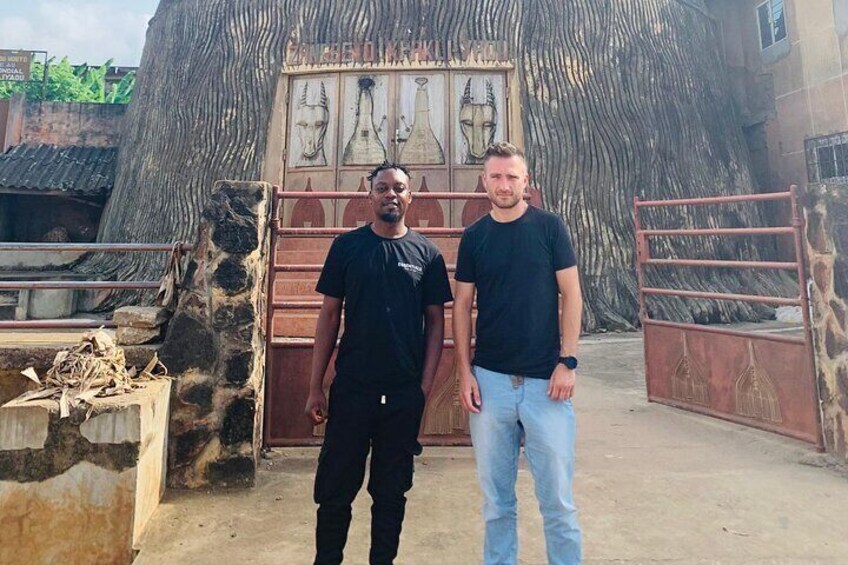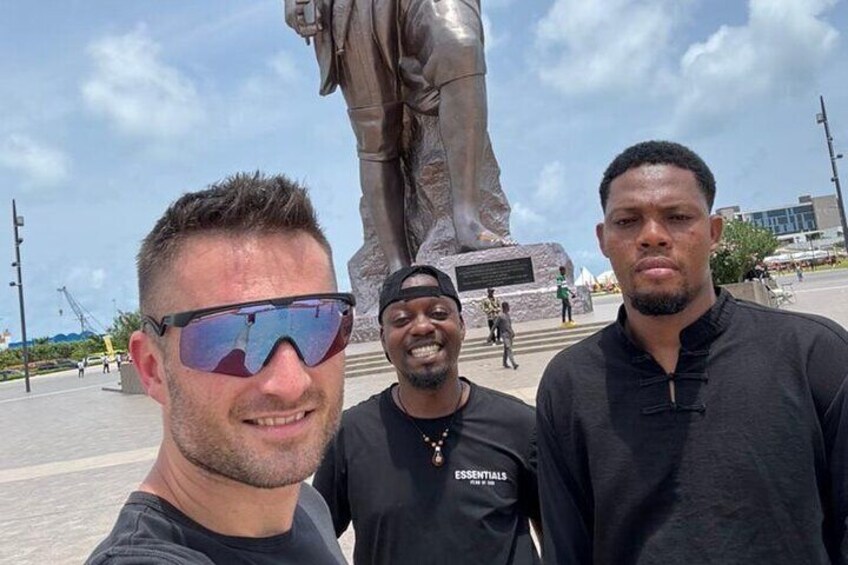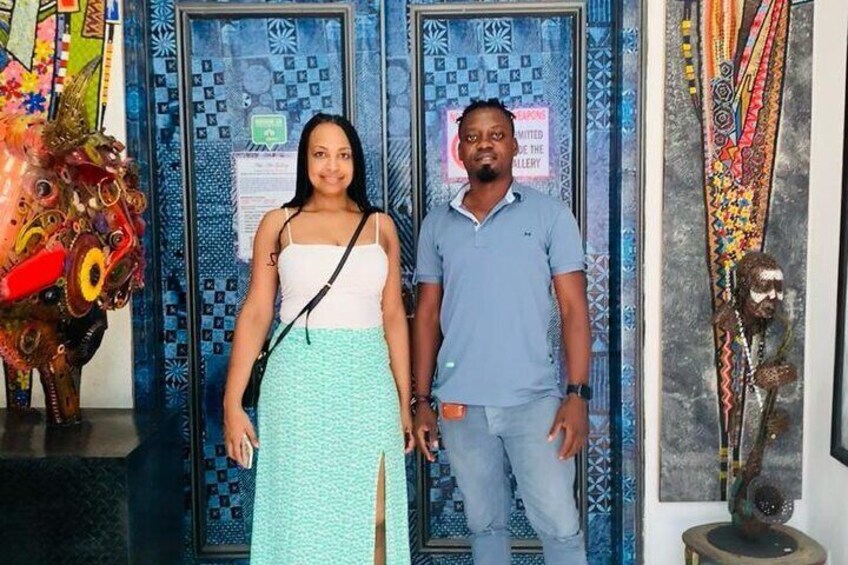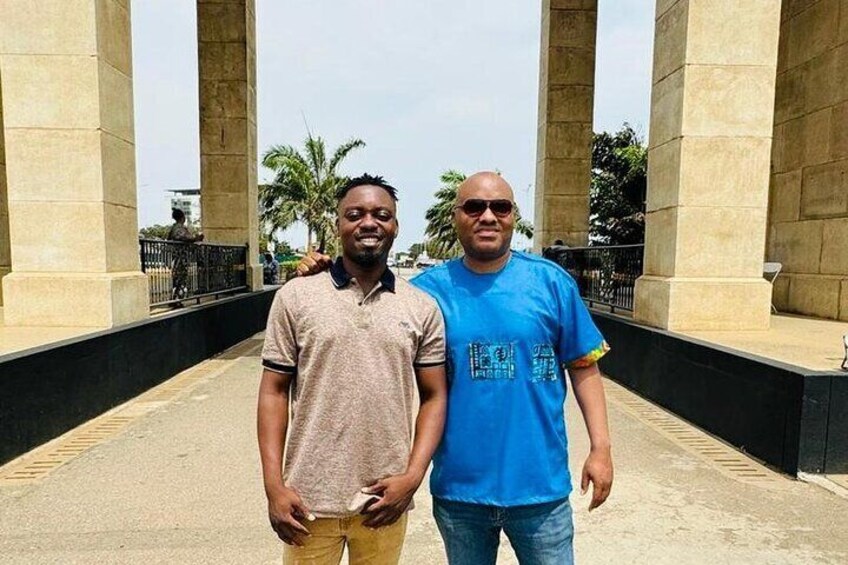Earn OneKeyCash when you sign in and book an activity





9 Days Four Country Tour Nigeria, Benin, Togo and Ghana
Features
- Free cancellation available
- 9d
- Mobile voucher
- Instant confirmation
- Multiple languages
Overview
What sets my tour apart is its unique blend of rich history, vibrant culture, and authentic West African experiences. This journey takes you through the heartland of the African diaspora, where the roots of slavery, heritage, and culture intertwine. From exploring the historic Badagry Slave Museum to walking through the sacred forests of Benin and touring the awe-inspiring castles in Ghana, you will immerse yourself in stories that shaped the African world. My tours are designed to offer more than just sightseeing — they are a deep dive into the past and present, allowing you to engage with local communities, experience traditional music and dance, and sample West African cuisine. With expert guidance and personalised attention, you’ll uncover hidden gems while making lifelong memories. This is not just a tour; it’s a journey to the soul of West Africa. Book now for an unforgettable adventure!
Activity location
- Nike Centre For Art And Culture
- No. 2, Elegushi Road, 3rd Roundabout, Epe Expressway
- 101222, Lagos, Nigeria
Meeting/Redemption Point
- Nike Centre For Art And Culture
- No. 2, Elegushi Road, 3rd Roundabout, Epe Expressway
- 101222, Lagos, Nigeria
Check availability
Full Package
- 9d
- English
3-4 Star Hotel : Hotel with twin bed ideal for 2 persons
Duration: 9 days
Breakfast
4x4 SUV
Entrance fees: Entrance fees to all sites listed in the tour
Pickup included
What's included, what's not
- WiFi on board
- Hotel/Accommodation
- Air-conditioned vehicle
- Fuel surcharge
- All other personal expenses not listed in inclusions
Know before you book
- Public transport options are available nearby
- Infants are required to sit on an adult’s lap
- Not recommended for travellers with poor cardiovascular health
- Travellers should have at least a moderate level of physical fitness
Activity itinerary
Day 1: Lagos arrival
- 3 stops
- Meals: breakfast
- Accommodation: Overnight in Hotel Capitol
Nike Centre For Art And Culture
- 1h
- Admission ticket included
Lekki Conservation Centre
- 2h
- Admission ticket included
Makoko community
- 1h
- Admission ticket included
Day 2: Abeokuta-Ogun state
- 3 stops
- Meals: breakfast
- Accommodation: Overnight in Hotel capitol
Olumo Rock
- 2h
- Admission ticket included
Olusegun Obasanjo Presidential Library
- 2h
- Admission ticket included
Osoba Adire/Kampala International Market
- 2h
- Admission ticket included
Day 3: Lagos - Benin
- 6 stops
- Meals: breakfast
- Accommodation: Overnight in Amazon Hotel cotonou
Badagry Heritage Museum
- 1h
- Admission ticket included
Badagry Slave Museum and Black History Museum
- 1h
- Admission ticket included
Seme
- 1h
Amazon River
- 30m
Centre de Promotion de l'Artisanat
- 1h
Cathédrale Notre-Dame-de-Miséricorde de Cotonou
- 45m
- Admission ticket included
Day 4: Ganvie - Abomey
- 3 stops
- Meals: breakfast
- Accommodation: Overnight in Hotel Mariella Ouidah
Ganvie
- 2h
Abomey
- 2h
Temple De Phyton
- 1h
- Admission ticket included
Day 5: Benin-Togo
- 6 stops
- Meals: breakfast
- Accommodation: Overnight at Hotel Marbellla Lome
Musee de la Cavalerie
- 45m
Ouidah
- 2h
Kaya Kinondo Sacred Forest
- 1h
- Admission ticket included
Togoville
- 2h
Slave House of Togo
- 1h
- Admission ticket included
Grand Marche
- 1h
Day 6: Togo- Accra Ghana
- 3 stops
- Meals: breakfast
- Accommodation: Overnight in Accra
Aflao
- 1h
Accra
- 4h
Osu Oxford Street
- 3h
Day 7: Accra city Tour
- 6 stops
- Meals: breakfast
- Accommodation: Overnight in Accra
Black Star Gate
- 30m
- Admission ticket included
Accra Arts Centre
- 1h
Kwame Nkrumah Memorial Park
- 1h
- Admission ticket included
National Museum of Ghana
- 1h
- Admission ticket included
James Town
- 2h
W.E.B. DuBois Center
- 1h
- Admission ticket included
Day 8: Cape coast
- 4 stops
- Meals: breakfast
- Accommodation: Overnight in Royal Elmount hotel Elmina
Cape Coast Castle
- 1h
- Admission ticket included
Elmina Castle
- 1h
- Admission ticket included
Kakum National Park
- 2h
- Admission ticket included
Assin Manso Ancestral Slave River Park
- 1h
- Admission ticket included
Day 9: Accra return/Departure
- 2 stops
- Meals: breakfast
- Accommodation: Overnight in Accra
Aburi Botanical Gardens
- 2h
- Admission ticket included
Tetteh Quashie Cocoa Farm
- 1h
- Admission ticket included
Location
Activity location
- Nike Centre For Art And Culture
- No. 2, Elegushi Road, 3rd Roundabout, Epe Expressway
- 101222, Lagos, Nigeria
Meeting/Redemption Point
- Nike Centre For Art And Culture
- No. 2, Elegushi Road, 3rd Roundabout, Epe Expressway
- 101222, Lagos, Nigeria